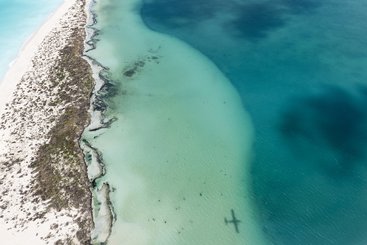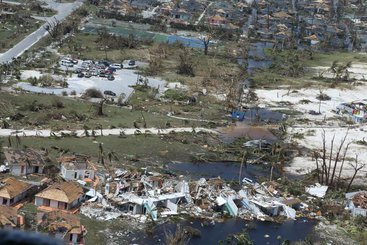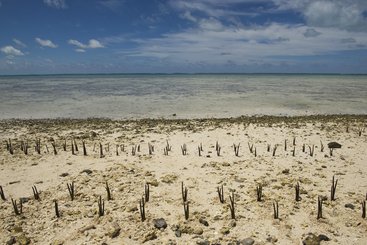Alliances between small states are key
Small Island Developing States (SIDS) have specific interests that can be furthered through international diplomacy. They depend on multilateral institutions to survive as sovereign states, but their capacity to engage and achieve national goals through international organisations is limited.
In the past, SIDS have used the international system to their advantage, especially in relation to climate change. They have worked effectively through the Alliance of Small Island States (AOSIS), G-77 and China and Least Developing Countries (LDC) groups, and the Climate Vulnerable Forum, to draw attention to their unique condition. Regional alliances such as the Caribbean Community (CARICOM) and Pacific Islands Forum (PIF), have allowed SIDS to assert a collective voice and agenda. Most recently, AOSIS successfully secured a dedicated window of funding through the Global Environment Facility (GEF) for 30 SIDS that are not LDCs – equivalent to US$3 million per SIDS from 2022-2026.
But successes have been largely confined to environmental issues. Core development challenges are widely recognised by the international aid and trade system, but special and differential treatment (SDT) has been more difficult to secure. The WTO has struggled to adequately address trade and development issues faced by SIDS, for example, as larger developing states fear that SDT for SIDS will set a dangerous precedent, and affect the competitiveness of their own economies.
Great power geopolitics is undermining island unity
These are long-standing problems. But they are being compounded by rising geopolitical tensions – particularly in the Pacific, between China and the US – which marginalise issues that are critical to SIDS, namely climate change, plastic pollution, illegal, unreported and unregulated fishing practices, piracy and the threat of oil spills.
The risk is that SIDS become embroiled in conflicts not of their own making, and that geopolitics leads to fragmentation, reducing the strength of SIDS’ collective voice. Fiamè Naomi Mata’afa, Prime Minister and Minister of Foreign Affairs of Samoa, has stated that “Pacific countries need to stand together as a region to protect from the current geopolitics and power play”.
Progress on SDG 17 ‘partnerships’ requires North-South, South-South, island-island cooperation. For SIDS, this means financial assistance, but also technology transfer, technical assistance and capacity-building; as well as cross-regional collaboration and knowledge sharing. SIDS have had most success on the world stage when they work together with one voice to turn their weight in numbers (of states) into meaningful action. This in turn attracts the attention of larger states, who can work with SIDS to realise their goals as articulated through the S.A.M.O.A Pathway.
SIDS need additional capacity to represent themselves and develop common agendas. Some large states have helped with this – for instance, the Commonwealth Small States Offices in New York and Geneva. But SIDS’ supporters can do more to facilitate burden sharing and overcome capacity constraints.
Overcoming capacity constraints through international alliances
The Resilient and Sustainable Islands Initiative (RESI) will assist SIDS to overcome these capacity issues and enable them to better represent their interests on the world stage. Specifically, RESI will:
- Identify emerging threats and opportunities for international, global and regional alliance building between SIDS with other states and international actors.
- Work with international organisations to help them understand SIDS’ unique conditions and better service their needs.
- Identify opportunities for more effective engagement by SIDS in international processes.
- Foster more sustainable South-South and North-South collaboration with SIDS.



